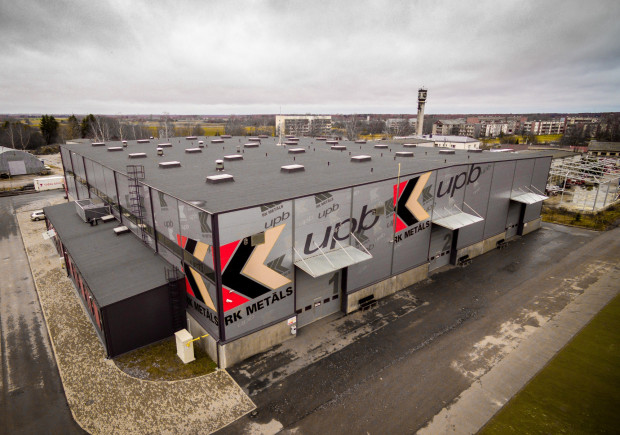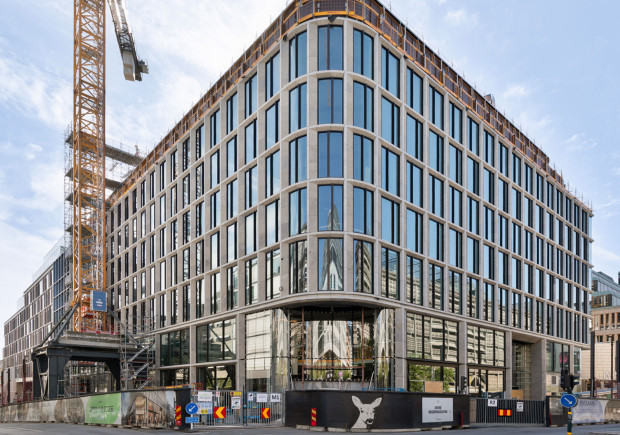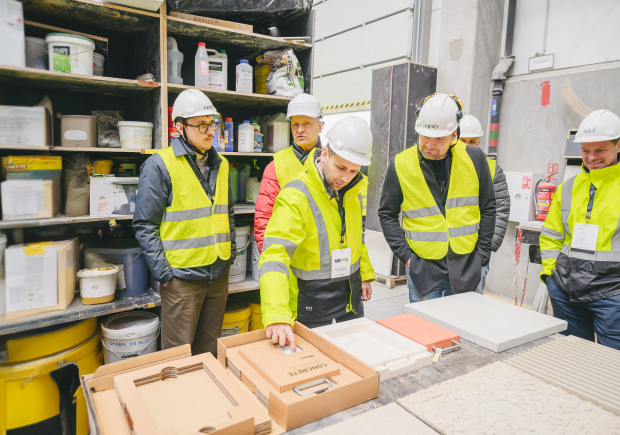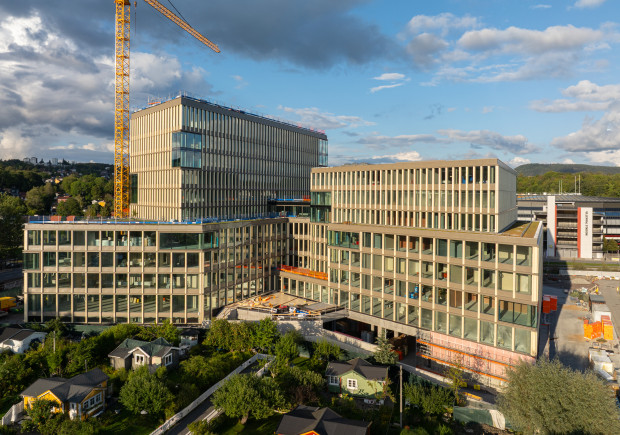So far, two and a half million lats have been invested in the mechanical engineering and precise metal-working factory project. Along with the previously reconstructed factory of SIA RK Metāls which produces metal structures, a new building has been erected, which is 4,000 m2 wide and includes the first stage of precise metal-working production unit and warehouse economy.
Equipment purchase for the second production stage continues. Equipment load during the first months of operation reached 70%, while servicing both UPB Holding companies and fulfilling orders from customers in Latvia, which account for approximately 30% of the new plant turnover.
“The minimal programme includes widening of the technological opportunities of UPB as an industrial concern, as well as developing a metal-working and mechanical engineering cluster in cooperation with other enterprises,” Chairman of the UPB Board Uldis Pīlēns describes the company strategy. In the nearest future, we also plan to focus on modern technologies, which will allow for the production of more complicated engineering solutions with a significantly higher added value.
Integrated solutions
Adoption of new technologies is carried out simultaneously with the production. “To expand the volume of orders gradually and qualitatively, we have to start with production planning and quality management,” the Director of the new factory, Artjoms Fokejevs explains. The company is preparing specialists to use the machines in order to switch to working two shifts. Simultaneously, the company is working on forming complex external orders, mainly for oil and gas industries. “We want to offer our clients a full engineering complex planning, production and logistics,” A. Fokejevs reveals. “Just like the other UPB holding groups, we want to enter the market with large, so called key projects,” he adds. Simultaneously, the new production unit fills a niche which has been missing from the Holding until now – manufacturing of small volume, precise and complex metal elements and products both for UPB group enterprises and external clients. For the larger UPB export construction objects, such as the university building in Bochum, Germany, the new production unit has manufactured unique parts using laser cutting, turning and multi-planar metal sheet processing machines, while for other objects original pipes with asymmetrical lozenge cross-section have been manufactured.
The new factory in Latvia produces specific parts for the prospective Cēsu concert-hall, as well as for the biomass boiler plant equipment of SIA Liepājas enerģijas and other objects of UPB Energy.
Import to be substituted
Traditionally, metal-working enterprises of Liepāja have mutually cooperated by combining technological and engineering options for the manufacturing of a possibly wider range of products. As the industry in Ventspils is developing, these enterprises have also been included in the cooperation model. A new form of cooperation, in which UPB has been involved, is a dual education model. DB wrote that, within the scope of the dual education project, students of the State Technical School of Ventspils will undergo production internships in several metal-working and mechanical engineering companies, including RK Metāls, located in the Grobiņa municipality. Workbench operators and welders can be found mainly among people who already have experience in this field, A. Fokejevs says. The dual education project will allow us to create our own educational programme based on the company specifics, and paying special attention to the level of efficiency. Metal-working and mechanical engineering electrical equipment engineers will now be joining more than 60 construction engineers already employed by the UPB engineering unit. The vision of the Holding includes not only export of products with a high added value and key projects, but also the substitution of import in Latvia. For example, as of now this includes the cogeneration stations designed and produced by UPB Energy, hydraulic vibrating tables and riser blocks with changeable dimensions produced for MB Betons group, as well as power installations for various key projects. Another example can be found in the new production unit – i.e., bridge cranes, which were traditionally purchased from foreign manufacturers, are now constructed and produced in Latvia. Engineering tests prove that their quality is in no way inferior to the products of similar, well-known brands, assures the new factory manager, Artjoms Fokojevs.
Source: DB
Vēsma Lēvalde
29.10.2013



